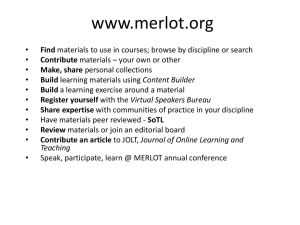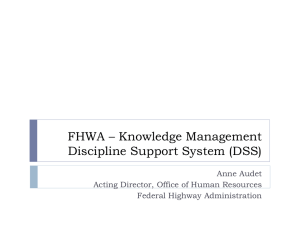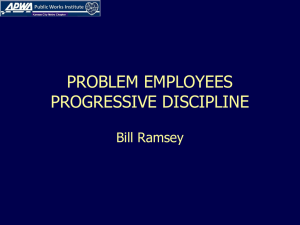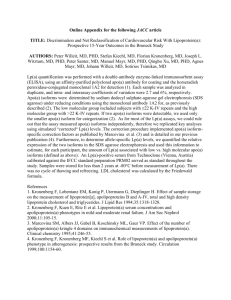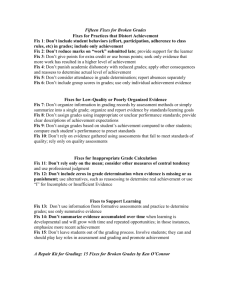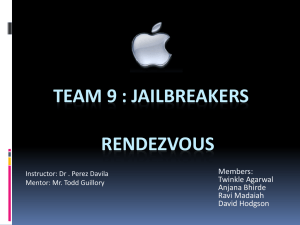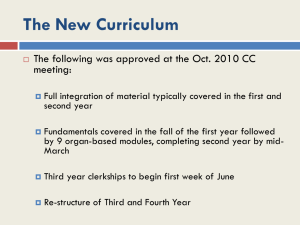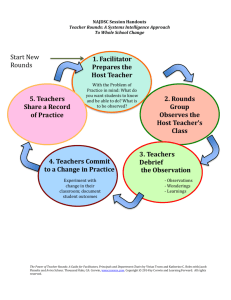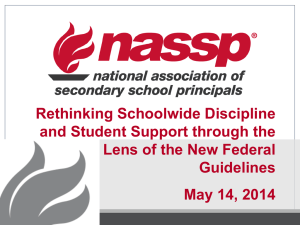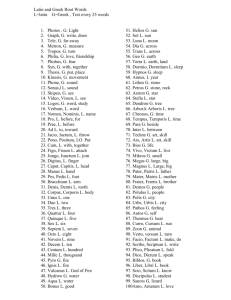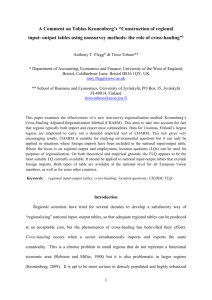In_Service LL session 2
advertisement
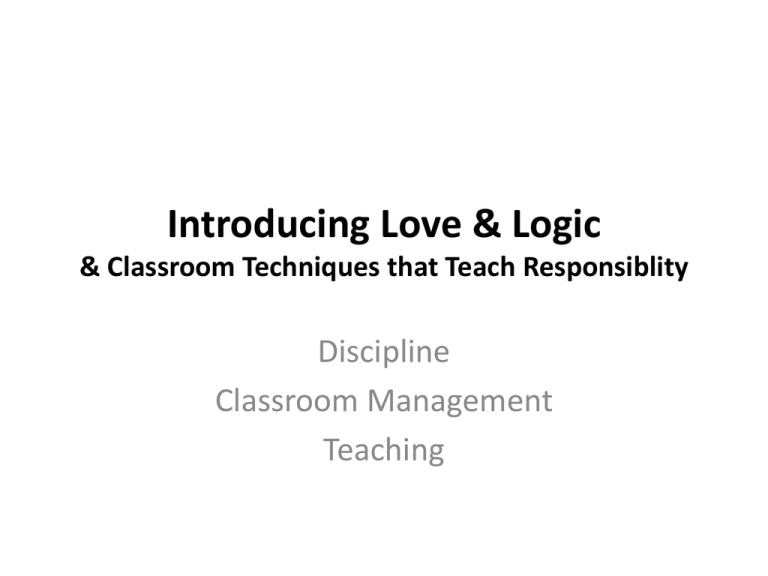
Introducing Love & Logic & Classroom Techniques that Teach Responsiblity Discipline Classroom Management Teaching Why “Love & Logic” • Had to pick one of the sectionals • Someone I know uses it and want to criticize them without sounding ignorant • Other discipline methods not working as well you’d like Good Discipline Requires? • Behavior-specific rules and pre-determined consequences • Warn students first • Give consequences immediately • Respect! – students don’t have to like their teachers, but must respect them Just an introduction — a sense of the approach The work of Jim Fay, David Funk, Charles Fay Corwin Kronenberg L&L, William Glasser, Stephen Covey Our Experience with “Love and Logic” at SCS Foundation • People learn from their own choices • Offer choices (within limits) • Be nice. Apply consequences. Check back in the morning • Enforceability Christian? Biblical? • Colossians 3:21 Parents, do not embitter your children, or they will become discouraged. (NIV) • Proverbs 15:1 A gentle answer turns away wrath, but a harsh word stirs up anger. (NIV) Christian? Biblical? • Colossians 3:21 Parents, don't come down too hard on your children or you'll crush their spirits. The Message • Proverbs 15:1 A gentle response defuses anger, but a sharp tongue kindles a temperfire. The Message © Eugene H. Peterson © Eugene H. Peterson • Discipline / Disciple (disciplina = teaching — discipulus = student) How did Jesus “discipline” his followers? Argue by Appointment only • “Go brain dead”: don’t try to reason with the student • Repeat “one liner”—standard response until they get it – I bet it feels that way. – I know. – That may be so, but what did I ask/say? – I can talk to you about this at break. I only argue at 10:05 or 3:15 Your choice. Delayed Consequences • OK or even best to delay consequences • How? “I’m going to have to do something about this . . . Later. Try not to worry about it.” • Warnings FAIL: Students play the system Recovery • Goals – Teacher can teach – Other students can learn • Recovery plan: Stages • Secure the plan in advance Recovery Stages Move in classroom Another classroom Office “Recovery room” in school Home Lots of Choices • Offer choices throughout your teaching • Guidelines: either way you’re deliriously happy • Examples Examples of Choices in Classroom • Do you want to choose a partner or have teacher do it. • Edit your own paper or have a partner do it. • Answer questions on paper or out loud. • Do the odd problems or the even problems. • Play group game or individual game. Students solve their problems • Why? Kids need to learn self-confidence, solve problems, think for themselves • But guide them: 5 steps Guiding Students to Solve Their Own Problem Love & Logic — STEPS -Calm empathy -Ask, “How are you going to solve your problem?” If needed, offer a list of suggestions (variety, not all good) Each one: “How do you think that will work for you?” Let the child decide to solve or not Guiding Students to Solve Their Own Problem FIX IT? (Kronenberg) Calm, respectful “Is that behavior above the line or below the line? “Do you want a consequence or do you want to fix it ?” “What’s the consequence?” “I don’t know yet, but it will be related, reasonable & respectful.” Guide them in thinking of the fix it plan: questions Let the student choose to fix it If not, “You choose not to fix the problem, guess what Mr/s _____ is going to have to do now?” Works for Me Helpful and successful for us • Allows more and better teaching • Relief to know that I have the mindset and techniques at the ready Learn More? loveandlogic.com Keeping Kids Above the Line About Corwin Kronenberg www.educationworld.com/a_admin/admin/admin594.shtml Corwin Kronenberg 952-831-3619 6017 W 96th St Bloomington, MN 55438 Behavior Management Consultant
